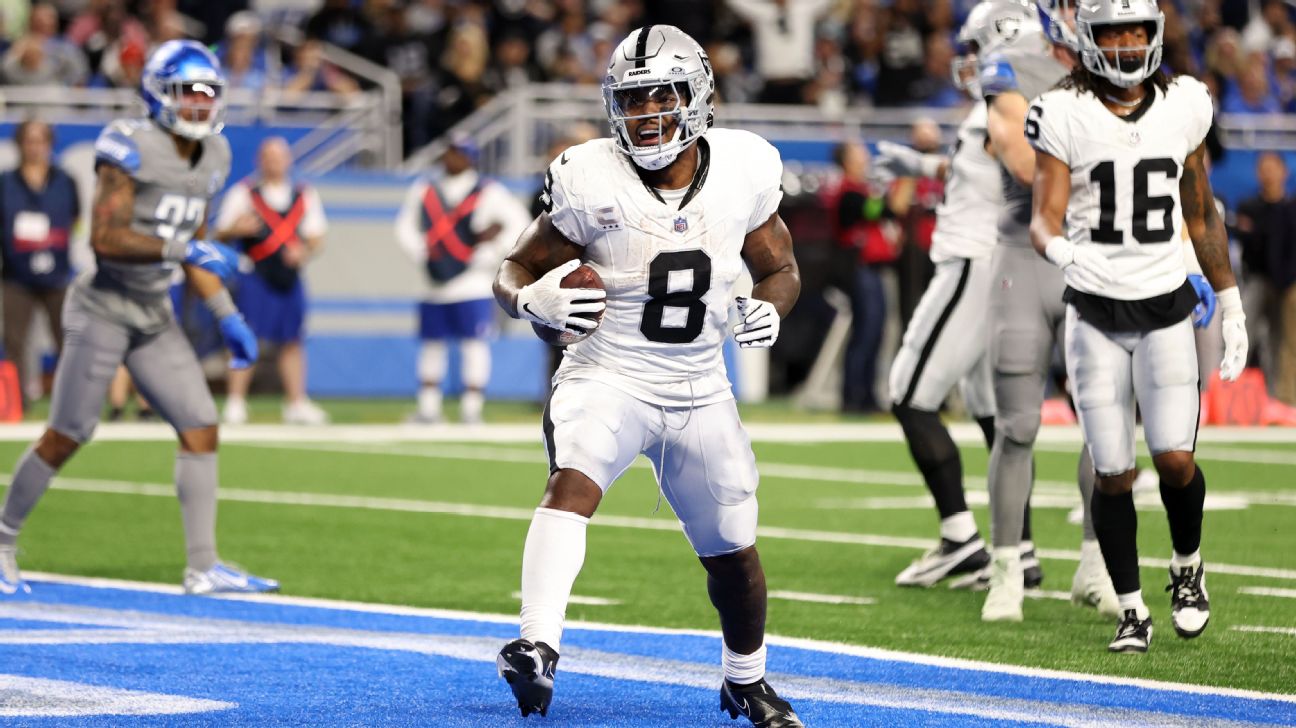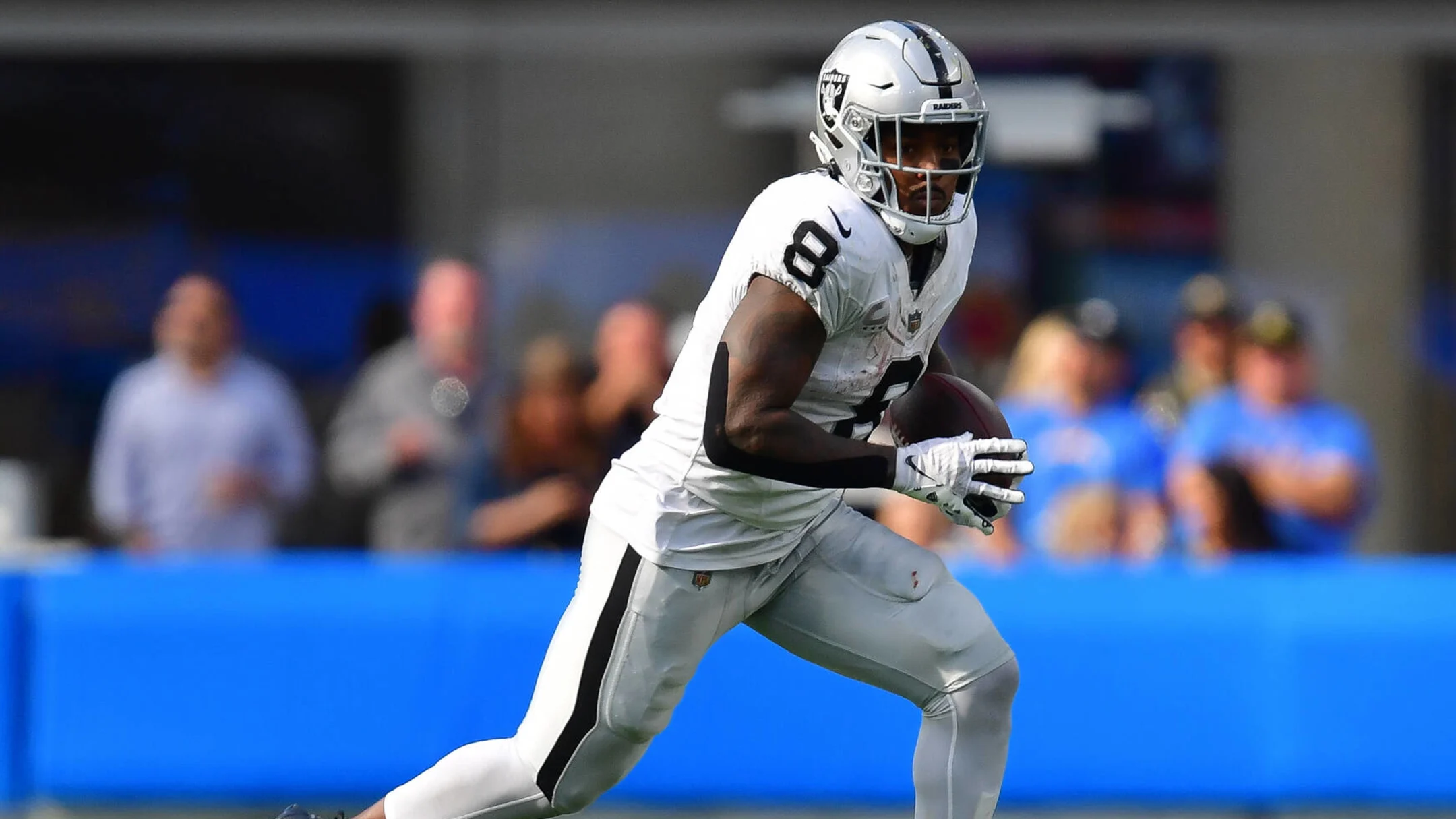In an offseason that has seen the NFL landscape shift with the kind of force usually reserved for tectonic plates, the Green Bay Packers have been at the epicenter of several seismic changes.
Amid a flurry of activity, their decision-making, particularly in the acquisition of Josh Jacobs, has left fans and experts alike scratching their heads in collective bewilderment. But could there be a method to what seems like madness?

Arrival of New Blood Josh Jacobs
The Packers’ offseason began with a bold move: the release of David Bakhtiari, a decision that was as necessary as it was emotional. Cutting ties with Bakhtiari freed up a whopping $20 million in salary cap space, a maneuver emblematic of the team’s willingness to make tough decisions for the sake of financial health and team evolution.
This move mirrors the Packers’ recent history of parting ways with cornerstone players such as Davante Adams, Aaron Rodgers, and Mason Crosby, signifying a clear shift towards a new era in Green Bay. Utilizing the newly available cap space, the Packers turned their attention to fortifying their lineup.
They made a splash in the defensive pool by securing Xavier McKinney, a top-tier safety from the New York Giants, with a lucrative four-year, $68 million contract. This not only boosted their secondary but also sent a strong message about their defensive ambitions.
On the offensive front, the Packers made headlines by signing Josh Jacobs, the powerhouse running back from the Las Vegas Raiders, to a four-year, $48 million deal.
This significant investment marked a pivotal change in their backfield strategy, especially in light of the release of Aaron Jones, a seasoned and much-loved figure in the Packers’ locker room.
Josh Jacobs calls Aaron Jones a Green Bay Packers 'legend,' hopes to maintain the same standard https://t.co/IkxtRw2Bhf
— Journal Sentinel (@journalsentinel) March 15, 2024
Controversy Surrounding Josh Jacobs’ Signing
The decision to opt for Jacobs over Jones has been met with a mix of intrigue and skepticism. Stephania Bell, a renowned fantasy football expert from ESPN, labeled the move as the most perplexing of the offseason.
Bell pointed out that despite Jones’ injury-laden season, his influence within the team and on the field was unparalleled. Jacobs, despite his undeniable talent, comes with his own set of risks, including a hefty price tag and a comparably aggressive accumulation of wear and tear from his years in the league.
This gamble becomes even more intriguing when considering that Jones, now with the rival Minnesota Vikings, will face the Packers twice in the upcoming season. This adds an emotional and competitive layer to the Packers’ decision-making, raising the stakes of each encounter with their NFC North adversaries.

Green Bay Packers Financial Implications
While Jacobs’ contract does offer the Packers an escape hatch should they choose to part ways before the four-year term ends, the financial commitment to him, especially in comparison to what retaining Jones might have cost, is substantial.
The Packers are betting big on Jacobs’ ability to elevate their running game, a move that will be scrutinized through every sprint, tackle, and touchdown.
The Packers’ offseason maneuvers reflect a broader strategy of renewal and realignment. By freeing up capital and investing in selected high-impact players, Green Bay is not just trying to manage its salary cap efficiently; it’s also aiming to recalibrate its team dynamics and competitive edge.
As the 2024 NFL season approaches, the Packers’ decisions will be put to the test. Will the departure of a stalwart and the arrival of new talents translate into success on the field?
Or will these bold moves be remembered as costly miscalculations? Only time will tell, but one thing is clear: the Packers are not afraid to roll the dice, for better or worse.

Source: nflanalysis









